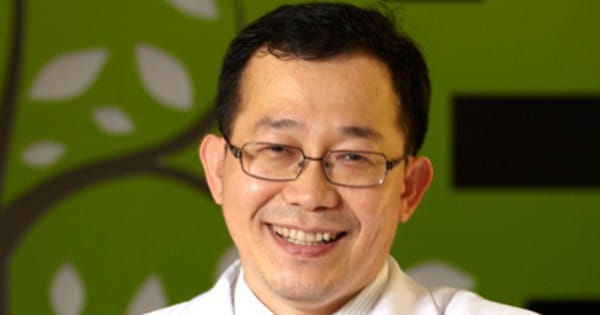As World Autism Day (April 2nd) comes and goes, it is important to continue spreading awareness about Autism Spectrum Disorder (ASD) and what it is. It is also crucial for many to understand that they are not alone in this issue, and that there are more and more treatment options available than in the past. We like to approach Autism treatment from its root, as the Functional Medicine practice dictates.
Fortunately, we are working with Asia’s premiere Autism and Functional Medicine Expert Dr. Torsak Tip-Pairote from Better Being Hospital. In this short interview below he goes into some details about what parents and patients should understand, his history working in Autism therapy, and what we can and cannot control when it comes to ASD.

Where did your interest in treating Autism come from? How did you get involved with Autism treatments and Autism groups such as the Autism Research Institute (ARI)?
Seven years ago, when I practiced functional and integrative medicine for common chronic conditions, a local mother of an autistic child, who took her son to see a US doctor regularly, approached me and asked whether I could help. I started to work with the family and the US doctor since that time. Then it expanded to the local autistic community. I started to attend the autistic conferences, got certified through ARI as a “Defeat Autism Now (DAN)” doctor, and expanded my services internationally a couple years later. It seemed quite natural that I should become more involved in this area after meeting so many families. I continued working closely with that family, the US doctor, and the Autism community. Most of my Autism patients come by referral from the family and the Autism society.
What rank, status, or accreditation do you currently hold in Autism related groups?
Currently, I am an accredited DAN physician from the Autism Research Institute, one of many in this region. I am also a Certified Functional Medicine Practitioner from the Institute of Functional Medicine (IFM) – the only one in Asia in fact. I hold a Masters of Science in Nutritional Toxicology which there are not many of. Laslty, I am a part time lecturer on these topics for a Master’s class in Dhurakij Pundit University and Mae Fah Laung University. I try to stay updated and involved in this area as much as I can.
What research are you doing that the Autism community can read to learn more?
Now I am working on a current paper titles “Bioaccumulation of lead in hair and association with Attention Deficit and Hyperactivity Disorders(ADHD) in Thai Children.” This is expected to conclude within the year and will show some interesting insights into a possible cause of Autism symptoms. I am also planning to conduct a study on “Food preservatives and Behavioral changes” next year. Both of these are targeting factors which we may be able to control immediately so it may prove very useful.
What is the most important thing for patients/parents to understand about ASD?
Autism is the output or manifestation of many interacting factors, from gene and lifestyle, food, environmental factors, down to many possible physiologic imbalances such as immunologic, nutritional deficiencies, toxic accumulations etc. Many things can still be managed, even though some cannot, in order to modulate the final clinical outcome.
What is your advice for parents dealing with Autism?
My advice is to start with their daily routine that may need changes: clean foods, nutritious foods, regular physical activity, ensure good relaxation, sleep, etc. Get tested in these areas if needed. Afterward, you may consider add-on intervention such as supplementation, hyperbaric oxygen therapy (HBOT), special training, Transcranial Magnetic Stimulation (TMS), adult stem cell treatment, etc.
Is Functional Medicine the future of Autism treatments?
This concept is already the future of all chronic conditions. It is the care of the next century.
What else do you wish to share on Autism?
The unmodifiable factors, such as genes, are not always our fate. Our body is working as the result of many interacting processes. Even if we cannot change certain factors, there are so many things that we still can work on to modify our body’s functions. If we change the way we look at the same problem, we will see many possibilities ahead.
